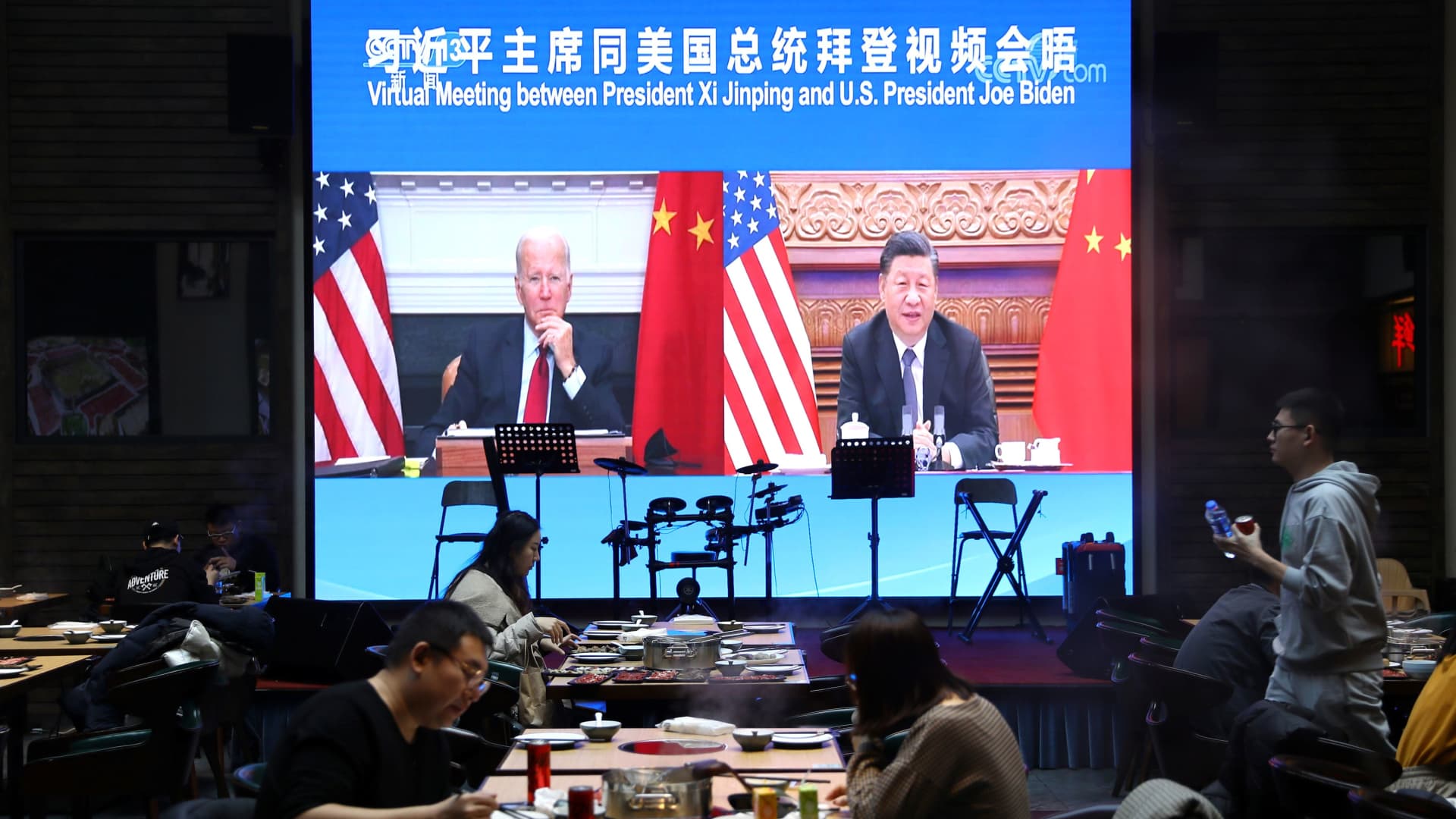
A screen shows Chinese President Xi Jinping attending a virtual meeting with U.S. President Joe Biden via video link, at a restaurant in Beijing, China November 16, 2021.
Tingshu Wang | Reuters
WASHINGTON — President Joe Biden held a nearly two-hour phone call on Friday morning with Chinese President Xi Jinping to discuss Russia’s invasion of Ukraine.
The call was seen as a critical test of whether Biden can convince China to stay on the sidelines of the conflict in Ukraine, and to turn down Russian requests for military or economic aid.
According to a readout of the call from the Chinese Ministry of Foreign Affairs, Xi told Biden that the United States and China each had an obligation to promote peace.
The White House has yet to issue a formal readout of the call, but said it began just after 9 a.m. and lasted just shy of two hours. That’s an unusually long time for a presidential call with the leader of a U.S. adversary.
It was unclear from the Chinese readout of Xi’s call with Biden on Friday whether the American president had shifted Xi’s thinking on Russia in any way.
“The world is neither peaceful nor tranquil,” Xi reportedly said to Biden, and “the Ukraine crisis is not something we want to see.”
Xi also reportedly expressed his belief that “conflict and confrontation are not in anyone’s interest, and peace and security are what the international community should treasure the most.”
The Chinese summary of the call said Xi told Biden that the U.S. and China, as permanent members of the UN Security Council and the world’s two largest economies, “must not only lead the development of China-US relations on the right track, but also shoulder our due international responsibilities and make efforts for world peace and tranquility.”
Pentagon officials said last week that Moscow has asked Beijing for military and economic assistance to wage its war against Ukraine, and that initial intelligence reports suggested China had agreed.
Spokesmen for both the Russian and Chinese governments publicly deny that Moscow has reached out to Beijing for help.
But the unprecedented economic sanctions imposed on Russia by NATO members and G-7 countries in response to the invasion have left Russia isolated and, some analysts say, desperate for financial assistance and military supplies.
Beijing has little interest in becoming embroiled in the economic battle between Moscow and the rest of the developed world.
“China is not a party to the crisis, nor does it want the sanctions to affect China,” foreign minister Wang Yi said during a phone call Monday with Spain’s foreign minister, Jose Manuel Albares.
This is a developing story, please check back for updates.





